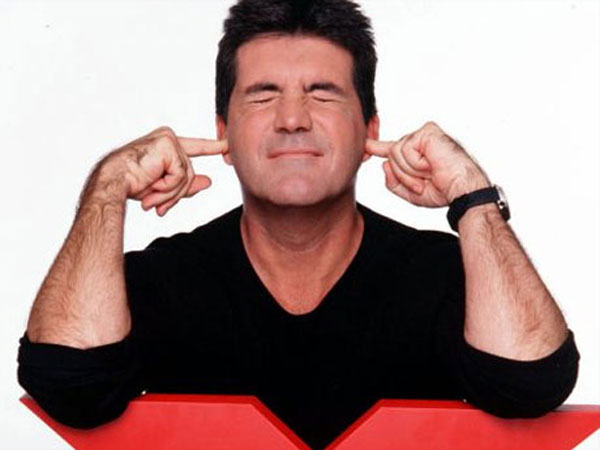We started out with 5 music career mistakes, but it quickly grew to 10! 
These 10 avoidable music career mistakes are geared towards singers looking to have a career as a recording artist in any of the popular categories such as Pop, Rock, R&B, Country, Dance, etc. If your field is Opera, Broadway, Vegas, and Wedding Singers, some of these “mistakes” don’t apply because of the different requirements in those fields.
Mistake #1. Just Because Picasso Published His “Sketches” Doesn’t Mean You Should Too. Avoid Permanent “Demos.”
Years ago, before the internet revolutionized the music industry, major labels were the only way for an artist to get exposure on a massive scale. Independent record labels had a limited reach, but for an artist without a record deal, the doors were practically shut. Recording costs were extremely high and to make a quality recording (a “master”) to compete on a professional level required tens of thousands of dollars. So the path for a new artist was to make a “demonstration recording” or “demo” as it’s commonly referred to and to shop that music demo to record labels. The record labels did not expect an elaborate music production because of the expense required to do so. Plus, there was true “artist development” at the record company level and they would help shape an artist’s sound and image. A basic demo was the norm and an acceptable standard in the industry.
Now, surprise! Technology comes marching along and changes everything. Recording costs are suddenly a mere fraction of what they used to be. Now a new artist can get their music heard by millions of people throughout the world, without any record label behind them! With the newfound capability to sell their music to the world as well as build up their fan base, getting exposure to music publishing companies and pitching their songs to movies and TV became much easier.
However, in order to do all this, will a basic, cheap demo do the job? In a word, NO! The “demo” still has it’s place as an audition tape for Broadway and wedding bands but If the quality isn’t sufficient for the TV/Film Industry, Broadcast or even for internet radio, what makes you think you’ll build up any fans? You won’t. What happens if you don’t build up any fans? Record labels most likely won’t be interested in you at all! Because all the rules have changed, record labels no longer need to accept poor quality or basic demos when tens of thousands of artists have great sounding “masters” and they’ve already built up a sizable fan base. It’s much easier for a record label to get involved with artists that have already achieved a certain level of success on their own, then to listen to thousands of demos that come across their desk each week, 95% of which are such poor quality they don’t even present the artist in a listenable state.
The demo might be a good way to try out a few ideas, like a sketch pad, but again, don’t try to market those “sketches”. If you’re serious as an artist, you’ll skip the “demo” stage altogether and record a MASTER, which will be broadcast quality and have the ability to be sold, licensed and published.
Mistake #2. Avoid Recording Covers. Seriously.
Again, times have changed and record labels are not just looking for a great voice. Unless you are just so unbelievably talented that you just can’t be denied, (and I’m talking Stevie Wonder, Mariah Carey talented) then recording covers only can bring you to the next stage, which is a company asking for something original. We’ve had artists come to us saying their next door neighbor is a big record company exec (or something like that) and he wants to hear something. So they record a few Karaoke covers and time and time again the reaction is the same. “Wow, you sound good. Now bring me some original material that shows who you are as an artist”. Well, doesn’t that bring you right back to where you should have started?
Also, by recording covers, you can’t really sell or license them. The publishing company and the songwriters own the rights and you’ll have to pay them for every download, or risk getting sued. Fun, right?
However, there are a few scenarios in which recording a cover makes sense.
For audition purposes.
To give to family, friends and pets.
If you really change up the music production and your interpretation as a singer is completely unique. You’ll still need to deal with paying out publishing royalties and the amount of money derived from sales and licensing will be significantly diminished. But, if you can break the big time with it, it could still be worth it
Other than that, your best move is to present yourself in a totally original format to set YOU apart from the crowd and show who YOU are as an artist. Get em, tiger.
Mistake #3. Avoid the Belief That the Only Path to Success is Through a Major Record Label.
Major labels lose money on 95% of their artists! The business model that the record industry was built on is dead, deceased, no longer living, as in “it doesn’t work anymore!” It worked for us at a time before the internet turned the music business world upside down and people discovered they can get any music they want right at their computer fingertips. They didn’t need to pay for overpriced CDs when they only wanted 1 song.
Originally, in order for it to make sense for record labels to manufacture a piece of vinyl (a “record” that played on a “turntable” for all you young folk) and place it on trucks and deliver it to thousands of record stores across the nation, (and the world) they needed to charge a certain price. The record store took their cut, the distributor took their piece, and then the record company kept the rest, paying the artist a small fraction after all expenses incurred by the record company were recouped from the artist’s measly share. But still, when mega artists like Led Zeppilin or Michael Jackson sold tens of millions of records, everyone got rich, and the influx of cash to the record company covered all the losses they sustained for the artists that didn’t recoup the money laid out by the record label on their behalf.
Times have changed, but the business model of the major record labels really hasn’t. So every year, there are more and more layoffs, artists cut from the rosters, smaller budgets for recording, and no label taking a chance on anything really new. Many Major artists are NOT re-signing with their record companies and instead, choosing to release their new CDs without them, through online downloads and distribution deals with major retailers like Wal-Mart, Starbucks and Target. People no longer need record labels to dictate to them how and where to buy music. There is freedom now for the music listening and buying public.
So what’s a new artist to do if not go through a major record label? Go right to your fans! One great thing the internet has done is to bring together niche markets. Find out where your niche is, what websites they frequent, what forums they use, etc. and let them know you’re there. If your music is in the style that appeals to that crowd, chances are you will pick up some fans and sell some music. Once you’ve developed your musical career to the point that it’s self sustaining and hopefully making money, you now have the basic ingredients in place that will attract a record company to you. There’s not enough room here to write about that subject, but there is a great book by my friend and colleague Daylle Schwartz, titled “I Don’t Need A Record Deal” which I suggest you pick up.
Mistake #4. Improperly Preparing for Your Vocal Recording Session.
I don’t know how many times I’ve seen artists come into the recording studio and waste tens of thousands of dollars because they failed to properly prepare for their recording session. You have to understand that the meter starts running from the start time of the session, whether or not you’re there. So first, make sure not to be late! I worked with one famous Rap group that booked and paid for 60 hours worth of time, and actually used less than 10 hours of actual productive recording time. The rest of the time was used to hang out, smoke, watch movies, eat, and play CDs. The group has since been dropped by the label. So unless you have a home recording studio where the clock is not an issue…
Prepare for the recording studio:
Do’s
- Be on time
- Bring your lyrics
- Check with the studio beforehand to make sure your music files are compatable with their’s. Don’t assume.
- Bring your music and/or data files on Hardrive, CDs and/or DVDs.
- Bring backups, just in case.
- Practice hard FOR WEEKS beforehand and know your material inside and out. Be in the best vocal shape of your life!
- Bring payment. Most recording studios won’t release any material until they’re paid.(unless you’re an established label)
Don’ts
- Don’t stay up late clubbing and trying to talk over the music
- Don’t have a big meal for at least a few hours before your vocal session
- Don’t bring your guns to the session. We tend to frown on that.
- Don’t treat it as party time, unless you can really afford to!
Mistake #5. Trying to Show Everything You Can Do In One Song.
Ease up, cowboy. Many singers feel that the first song they do has to encompass everything that the singer is capable of doing. They want to show their full range, their power, all the intense riffs they copied from Mariah, whistle tones, scatting, ad-libbing, cooking and who know what else. But sheesh, remember, it’s just a song! What’s appropriate for the song has to come first. That’s another important reason to rely on a music producer you trust. They will help bring out the best in your voice, while sometimes knowing when to keep you in check.
I remember seeing Jessica Simpson and Nick Lachey a few years ago singing a holiday song duet. It was soft and quiet, and Nick’s vocals matched the music and the feel beautifully. Then Jessica came out belting and singing all out trying to do all these riffs, but the song was still mellow and soft, and her voice sounded completely out of place. I shook my head and said “is she even listening to the music?” To give you another analogy, just because a guitar player can shred, should it be all over a mellow ballad? (the guitar player in me says “damn right, always!”, but the producer part says “shut up with that guitar already!!!”)
So don’t force it. A career isn’t built on one song, but it’s a process. Sing what’s appropriate for that song, stretch a little where you can but let it be natural.
Mistake #6. Making Your CD or Demo Too Diverse.
Most people like a wide range of music. When prompted with the question “What type of music do you like?” half the people respond with “everything”. So it stands to reason that most artists will also like a few different styles of music, and when putting together songs for a CD, they will choose to showcase those different styles. The artist feels that people will be impressed when they hear them sing Rock, Country, Pop, Dance, and R&B, but that’s not really the case, especially for a new artist. The artist first needs to establish their ‘sound’; their brand if you will. They should have an identifiable sound and style, so that fans will know what to expect when they choose to listen to the artist. If you picked up a Bruce Springsteen album and heard instrumental new age music, you may be a little confused, and you don’t want to confuse your fans. So pick one style, and you can do variations of that style and stretch out on a song or two, but don’t go too far and try to cram four completely different styles into one CD. Stay focused and establish your sound.
Mistake #7. Getting Involved with Shady People.. Unless it’s Slim Shady.
Yes, ladies and gentlemen, the Music Business does have more than it’s share of shady individuals that prey on the naive and ill-informed. Yes, there are a lot of scams out there. Yes, woman especially should be fearful about going into strange apartments to audition, to record, to have meetings, etc. The good thing is that there is Google, so that you can easily look up a person or company to see its background before committing to something you might regret.
While you can’t believe everything you hear on the internet, it still affords one the opportunity to see what people are saying. And ladies, while a few known artists have “slept their way” into something, 99% have not. So if someone is telling you that’s the way it’s done, tell them to go to hell!
The most important thing is trust your gut. Many shady people I’ve met through the years have not lasted more than a few years before everyone knew what they were about.
While there are exceptions, most professionals in the music industry and companies that have been in the industry for ten years or more, are honest and legitimate. So, make sure to work with an established company, trust your instincts, and you should be fine.
Mistake #8. Getting Pressured Into Signing a Deal.
If you ever get to the point where a record company (or management company) says that they love you, can’t live without you, and they offer you an exclusive deal in their office, congratulations! But if they say that the deal has to be signed on the spot or it will be withdrawn, you have some tough decisions to make. Nine times out of ten, the initial deal offered by a record company is completely one sided (even if they love you) and you’d have to be very naive to just sign it. Most of the time the deal centers around the artist giving the record company everything and the record company promising nothing in return! If the label is sincere in their belief of you as an artist and they really do want to sign you, then they expect that you’ll hire an entertainment attorney and proceed with the normal negotiation process.
There are also countless accounts of boxing promoters using the same “sign it now or I take it away” tactics, and many have ended up in court. But don’t mistake a simple agreement that may be non-exclusive for a full fledged exclusive record deal. A one or two page agreement outlining terms of a deal you’ve agreed on, should be fine to sign without an attorney. A non-exclusive publishing deal for a song for a limited time is often just a one or two page deal. Ultimately, use common sense.
Mistake #9. Avoid Believing Success is Just a Matter of Luck or Who You Know.
I heard that “it’s just a matter of luck” or “it’s who you know” many times when I was just starting out, and I flat out refused to believe it. I wasn’t going to devote my life to just a roll of the dice. I was right. While you can look around and spot a few people that just got lucky, or who just knew the right people, this is by far the exception, not the rule. Often when this happens, the artist may not have the real talent to actually sustain a career. Now don’t get me wrong here, luck does play a part. Samuel Goldwyn once said, “The harder I work, the luckier I get.” It’s your job to put yourself in positions and situations where you can get yourself lucky, as it’s also your job to try and get to know the right people by networking, joining organizations like ASCAP, songwriters workshops, etc. So work hard and be ready if a lucky opportunity comes your way, but don’t just sit back and think that because you don’t know anybody in the industry, you have no shot. The formula has always been the same for success. Hard work, talent, hard work, perspective, and more hard work. Good luck!
Mistake #10. Believing Your Music Has to be 100% Perfect.
Here is where I will get some conflicting opinions, so you have to use your common sense and decide for yourself. Many music business authors have stated that the artist should feel that their music is perfect before sending it out, but the grey area here is defining “perfect”. I have spent days in the studio mixing records that have gone on to be #1 Billboard hits, and there are things about the mix I’m still dissatisfied with when I hear the song on the radio. It’s not “perfect”, but it has passed my threshold of “good enough”. The problem here is where is your threshold set?
If it’s too low, you can be satisfied with putting out music that you’re not really happy with and probably no one else will be, either. That’s the argument that many authors use and I agree with it. But if your threshold is set too high, you may never release anything. Assuming that you’re growing and developing as an artist, you will always be better than what you previously did. At a certain point, though, you’ll just have to say that this is the best that you can do right now and put it out there. It all comes down to the least understood virtue to achieve success, which is “perspective.”



